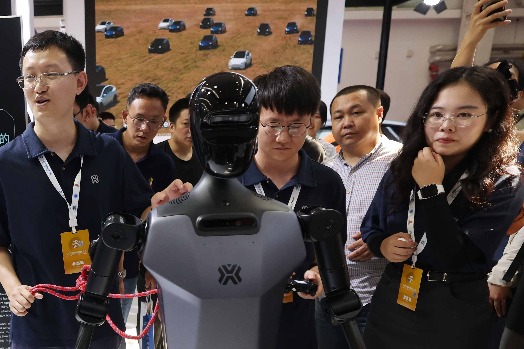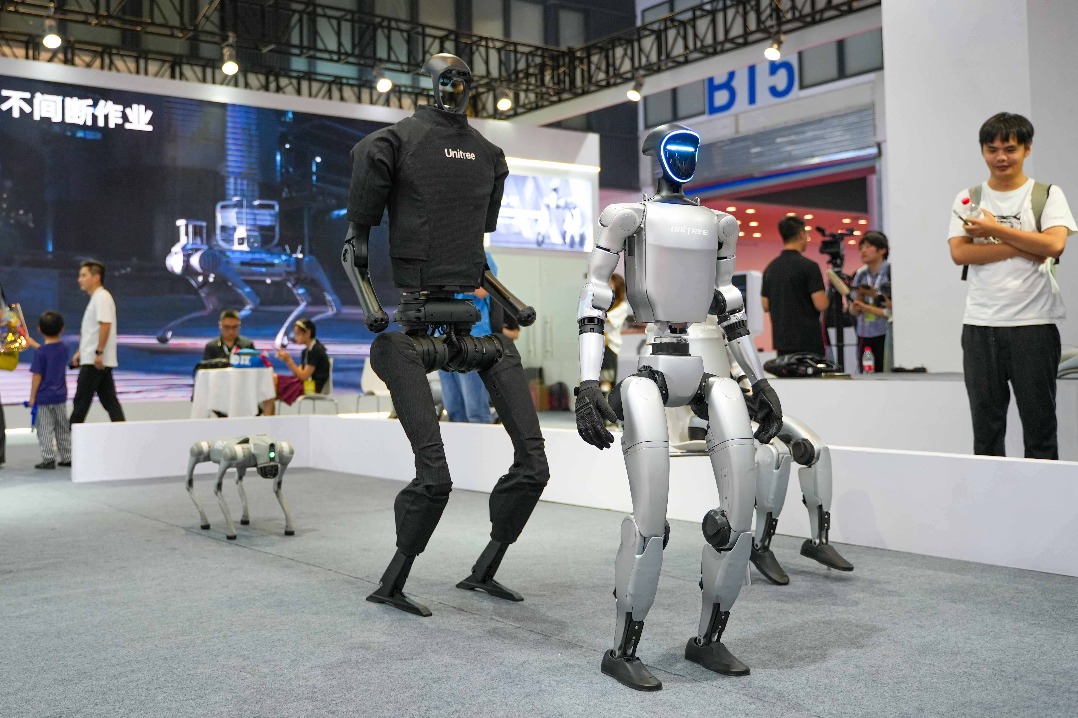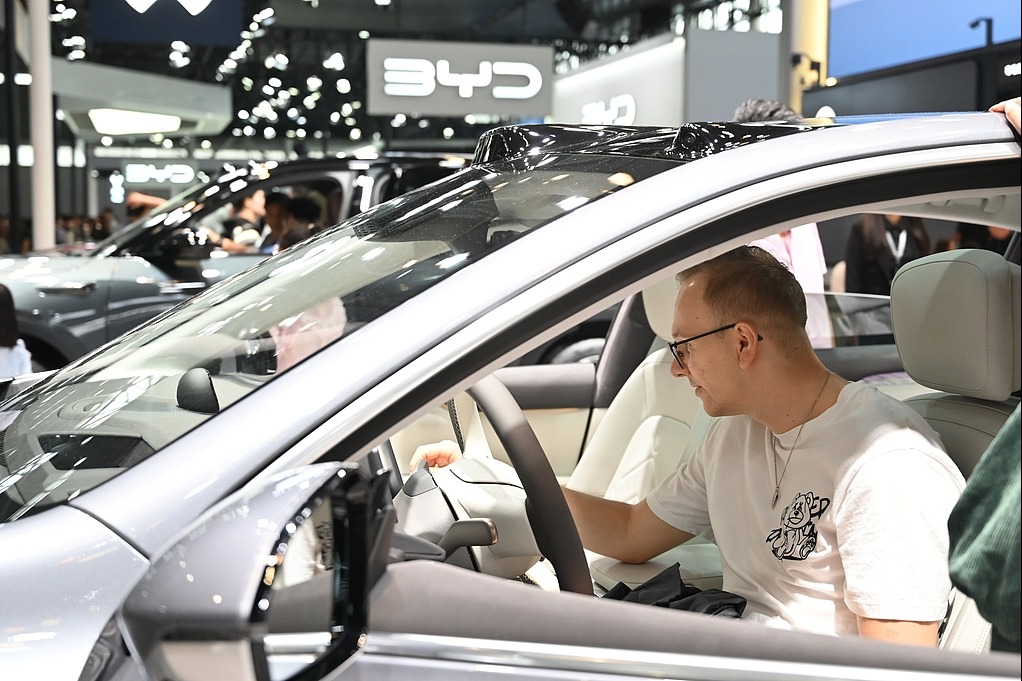Robot-maker Kuka seeks growth in new spheres-and in China

German industrial giant Kuka is the world's largest producer of robots used to make automobiles, with its signature orange cranelike bots a fixture in automated car factories across the globe.
So why is Chairman and Chief Executive Till Reuter worried?
The reason is simple enough: Growth in robots for all industries other than automotive is up more than 10 percent; that compares to just 3 percent to 5 percent for the car industry, he says. Kuka's auto business has fallen from 80 percent of robot revenues, when he took over the company in 2009, to around 50 percent today, Reuter notes.
Now, this 120-year-old company, which in January became just under 95 percent owned by China's Midea, the world's largest appliance maker, is aiming to pull off a big transformation that, if successful, will take it into faster-growing robot markets.
That means smaller-sized and nimble robots for electronics manufacturing and logistics warehouses. Also on the drawing board are machines that could handle plugging in electric vehicles for owners, or even allow the elderly to live independently at home later in life, Reuter said in an interview in the southern Chinese city of Guangzhou, Guangdong province, earlier this month.
"We want to keep number one in automotive (but) we see that the higher growth is coming out of other industries and other sectors." For example, one large market that will become "even bigger in the future will be the production of mobile phones, handhelds, and iPads," he says. Reuter is referring to robots that have a payload-the maximum weight they can pick up and manipulate-of six kilograms or less, and are capable of carrying out much more delicate assembly tasks.
China will be key to realizing Kuka's diversification strategy, which is being led by Reuter, who makes monthly visits to Midea's Foshan headquarters and stays in close contact with its chairman and CEO Paul Fang. It's the world's largest and fastest-growing automation market. Sales of robots in China, which amount to about one-third of the global demand, grew by 27 percent last year, compared to just 12 percent in Europe and 8 percent in the Americas, according to the International Federation of Robotics.
With 68 robots per 10,000 Chinese manufacturing workers, far fewer than the 189 in the United States and 631 in South Korea, there's room for growth and rising factory wages are powering more automation.
"We want to become number one in China," says the Kuka executive, noting that their market share for robots last year was around 14 per-cent (that puts it among the top three suppliers).
Revenue in the country, now at 500 million euros ($588 million), will be "way above" one billion euros by 2020, he predicts.
"If you want to be a global player, you need to compete there," says Justin Rose, a partner at BCG in Chicago. "China will become even more important."
Kuka however, is hardly alone in vying for the $11 billion China market. ABB and Fanuc are two of its largest competitors globally in industrial robots. Meanwhile, local rivals including E-Deodar Robot Equipment Co, Anhui Efort Intelligent Equipment Co and Siasun Robot & Automation Co sell their robots for about one-third the cost of foreign brands. A cost-cutting war and shakeout is possible, as China's hundreds of new local robot makers start to vie for market share.
Wang Tianmiao, president of the Smart Manufacturing Research Institute at Beihang University, said rapid technological progress puts a group of Chinese robotic players in a better position to challenge their foreign counterparts.
"Chinese companies move fast to apply artificial intelligence technology to make robots smarter, and can deliver them to the market at affordable costs," Wang said. "Foreign players need to work hard to maintain their edge."
"Made in China 2025", the government's plan to modernize and automate manufacturing, has set specific targets to increase the proportion of Chinese-made robots.
"Kuka is now part of the Midea family, which is great," says the bespectacled Reuter, who has worked as an investment banker for Morgan Stanley, Deutsche Bank and Lehman Brothers. "Midea is helping us in China get more weight on the ground."
Along with its push into non-auto industrial robots, Kuka aims to leverage Midea's sales networks and company connections to start producing consumer-focused robots, too. The companies are jointly building a large industrial park near Guangzhou that will have R&D, technology development, a robotics training center, and critically, a production facility.
"We are increasing capacity. That is the first step," Reuter says. "For Kuka, the park will be a very, very important step towards becoming number one."
As to what specific kinds of robots will be produced in the new park or elsewhere in China, Kuka's chairman is keeping mum for now.
"We have some projects on the consumer side (but) lots of them are still confidential. If I let them out of the box, people will probably jump on," Reuter says.
Bloomberg-China Daily




































